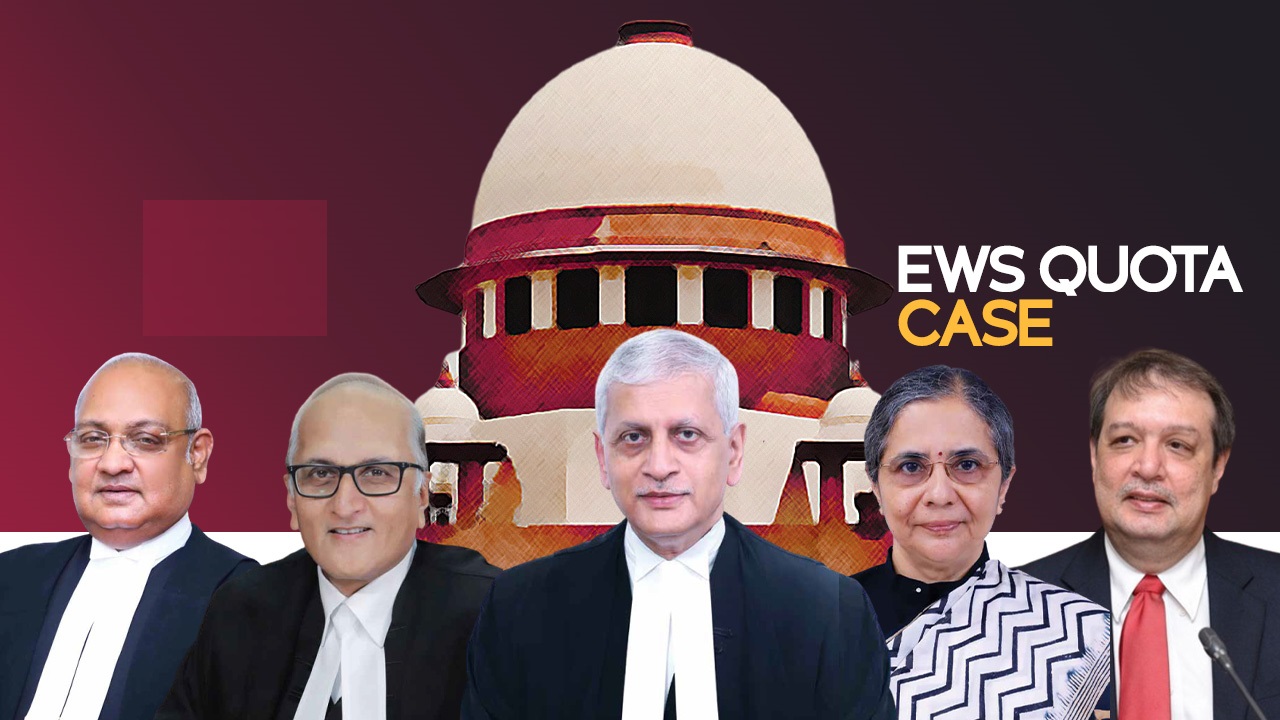
The latest verdict by the honorable supreme court came in light on the last working day of the incumbent Chief justice of India (CJI), UU Lalit.
The ruling by SC on the 103rd constitutional amendment act of 2019 clarified the ambiguity of the reservation criteria and validated the same. The 5-bench judgement was passed with a majority of 3:2

The 5-judge bench was headed by Chief justice of India- UU Lalit. Other members were- J B pardiwala, S Ravindra Bhat, Bela Trivedi and Dinesh Maheshwari.
103rd constitutional amendment became contentious since its passage. As it provided 10 percent reservation in government jobs and in educational institutes taking the reservation percentage to 59.5(OBC-27 %, SC-15%, ST-7.5%, EWS- 10%). It also introduced Article 15(6) and 16(6) in the constitution of India. It was alleged that it breached the ceiling of 50% reservation fixed under Indra Sawhney or mandal case. The ceiling could only be changed under extraordinary conditions.
The constitutional amendment act provided 10 percent reservation in jobs and admissions to all other than SC, ST and OBC (as they were already under reserved category) and whose annual family income was below 8 lakh₹. The act created tussle due to income criteria and it was alleged that taking the ceiling to 59.5 % would demean the purpose of reservation as it would include the majority of population under the ambit of reservation
The recent judgement held that EWS reservation in addition to the 50 percent of all available seats is constitutional because the ceiling limit under the Indra Sawhney case itself is flexible and applies to caste-based reservation only.




















